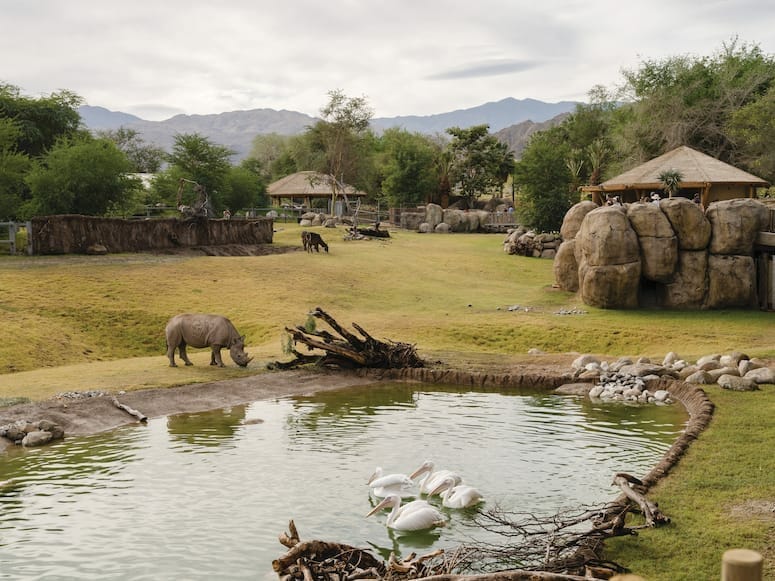A Desert-Friendly Zoo: A Sustainable Vision for Las Vegas
Las Vegas, a city often associated with glittering lights, world-class entertainment, and endless innovation, is setting the stage for an exciting new chapter rooted not in glamour but in sustainability. Spearheaded by local resident Steve Lake, an innovative proposal to establish a desert-friendly zoo could potentially redefine urban development and environmental conservation within this iconic desert metropolis. More than just a novel concept, this project aspires to create a sanctuary for wildlife, align with the unique ecology of the Mojave Desert, and foster a deeper understanding of the delicate balance of desert ecosystems.
A Sustainable Vision in the Desert
The vision for this desert-friendly zoo stands in stark contrast to traditional urban attractions. Instead of imposing artificial environments, Lake’s design focuses on celebrating and preserving the natural beauty of the Mojave Desert. Spanning no more than 25 carefully curated acres, the zoo would exclusively house species adapted to arid climates, allowing for a harmonious integration with the surrounding environment while conserving natural resources. Rather than relying on intensive climate control systems or high-maintenance infrastructures, the zoo would take inspiration from the inherent resilience of its desert inhabitants, like reptiles, desert foxes, and birds, which are naturally equipped to thrive in extreme conditions.
The zoo’s infrastructure would embody modern sustainability principles, embracing water-efficient systems and energy-saving technologies to minimize its environmental footprint. In a city where water is a prized commodity, this approach reflects a broader push for responsible resource management. Innovative habitat designs that mimic the natural landscapes of desert ecosystems would keep the animals comfortable without compromising the city’s conservation goals, making the project as eco-friendly as it is educational.
Beyond Entertainment: Education and Conservation
Steve Lake’s proposed project isn’t merely about adding another attraction to Las Vegas’ diverse offerings; it’s about creating a space where visitors can connect with the natural world in an impactful way. The zoo could double as an educational hub, offering both locals and visitors the opportunity to learn about the Mojave Desert’s unique wildlife and the incredible adaptations species have evolved to survive in one of the planet’s harshest environments. Through immersive exhibits resembling natural habitats, guests would gain firsthand insights into the intricate interplay of desert ecosystems.
At its core, this concept has added significance in light of global challenges like climate change and the escalating threats to biodiversity. By shining a spotlight on desert ecosystems and their ecological fragility, the zoo could raise awareness about preserving similar environments worldwide. Visitors would not only interact with fascinating animals but also walk away with a better understanding of how their everyday choices impact ecosystems—including those seemingly far removed from their urban lives.
A New Chapter for Las Vegas Tourism
For a city traditionally defined by its exuberance and flashiness, adopting a project of this nature signals an important evolution. A desert-friendly zoo has the potential to diversify Las Vegas’ tourism scene, which has long been anchored in nightlife and entertainment. It would offer families and nature enthusiasts alike a new reason to visit the city and provide residents with an enriching resource to enjoy year-round.
Moreover, the zoo’s environmentally conscious mission aligns with growing regional efforts to tackle issues like water conservation and sustainable development—factors critical to ensuring Las Vegas continues to thrive in its desert setting. By weaving sustainability into its tourism fabric, the city has the chance to demonstrate leadership in balancing economic growth with ecological stewardship.
Challenges and Community Collaboration
Of course, bringing Steve Lake’s vision to life is not without challenges. Building an eco-conscious zoo on this scale requires meticulous planning, substantial financial investment, and active community involvement. The habitats must meet stringent standards of animal welfare while fulfilling their educational and conservational objectives. Securing buy-in from Nevada residents and visitors is likely to require extensive outreach, ensuring that transparency and collaboration remain at the heart of the initiative.
Additionally, the project will need to address concerns about costs, environmental impact, and long-term feasibility, especially in a community already navigating critical resource issues. By enlisting experts in desert ecology, sustainable development, and animal behavior, Lake can ensure the project adheres to the highest ethical and environmental standards while maximizing its appeal and effectiveness.
A Blueprint for the Future
If successful, this desert-friendly zoo could become a model for cities in arid climates worldwide, offering a blueprint for how urban development and wildlife conservation can coexist. Beyond creating an engaging attraction, the project would boldly redefine the role of zoos in the modern era. It would show how these institutions can evolve from mere entertainment venues to educational platforms and centers of ecological advocacy.
Steve Lake’s vision extends far beyond Las Vegas—it represents a shift toward environmentally conscious innovation, even in the most unlikely places. By seamlessly integrating sustainability, conservation, and tourism, this project has the potential to leave a lasting legacy, not just for Las Vegas, but for all cities striving to balance human progress with the preservation of the natural world.
